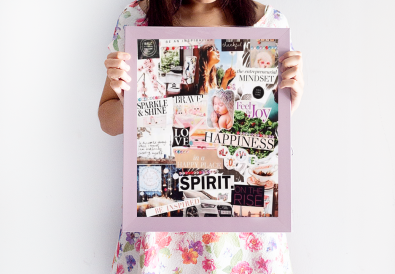The other day, I was sitting on a very crowded subway car at the height of rush hour, when the panic set in. I knew it was happening from the physical symptoms: the painful muscle “stabs” in my back; the shortness of breath; the pounding heart rate, and a feeling of impending doom. As I often do, I chose to ignore the feeling until it became overwhelming. But then, I decided to actually acknowledge the anxiety, and to just observe it, like an outside watcher, as Headspace meditation guru Andy Puddicombe has coached me to do via my daily app meditation sessions.
I sat back and watched the sensations, thoughts and feelings, and noted each one, labelling them, as an academic researcher might. I noted my surroundings, too: the mass of people, all getting up in each others’ business, and trying to bust their way in and out of this packed-sardine streetcar. I realized that, given the situation, it was actually okay to feel anxious. It was a stressful situation that I hadn’t encountered in a while, and crazy crowds, and close, confined quarters, do make me anxious (I was also without my usual armour of headphones to block out the world). Realizing this, I gradually started to feel better as I continued the ride home, and actually smiled to myself, as I realized I had just “made friends” with my anxiety. That it’s okay to feel this way sometimes. I am human, after all.
It hasn’t always been this way, and it has taken me a very long time to come to these realizations. And no single “anxious moment” is ever the same. In fact, these “moments” set in several times a day (too many times to count) and it’s just the tip of the iceberg of the symptoms I face as someone who has dealt with both anxiety and depression for the better part of my life. I have good days and bad days. When I have very bad days, and the darkness sets in, the feelings of unworthiness become too much. My usual response to these feelings is to isolate myself from the world and hide in the safe haven of my apartment. My independence has always been like a badge of honour that I wear to show the world that I can do this, and I can “go it alone.” Society rewards those who go it alone, after all (as Brené Brown, author and research professor, noted in her book The Gifts of Imperfection).
But I’ve realized that ignoring my feelings and shutting people out is not the answer, and in fact, makes those feelings of loneliness, and of fear, and of feeling like I don’t belong, far worse. As Stephen Illardi, clinical psychologist at the University of Kansas and author of The Depression Cure notes: “Social withdrawal amplifies the brain’s stress response.” Further, he contends, “Social contact helps put the brakes on it.” What’s more, sharing our stories and struggles with mental illness helps open the door for others to share their own struggles.
So yeah, I don’t have to go it alone. And neither do you. It’s okay to ask for help when you need it. It may take some time, and it may feel incredibly scary to share your feelings and to show your vulnerability. But it’s one of the bravest things you can do.
Editor’s Note: This piece was written on Bell Let’s Talk Day.













This is help for everyone. thank you. Let us talk